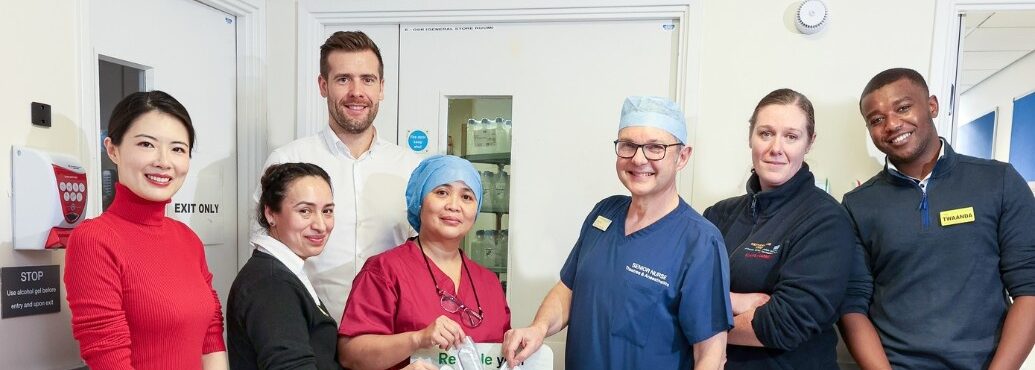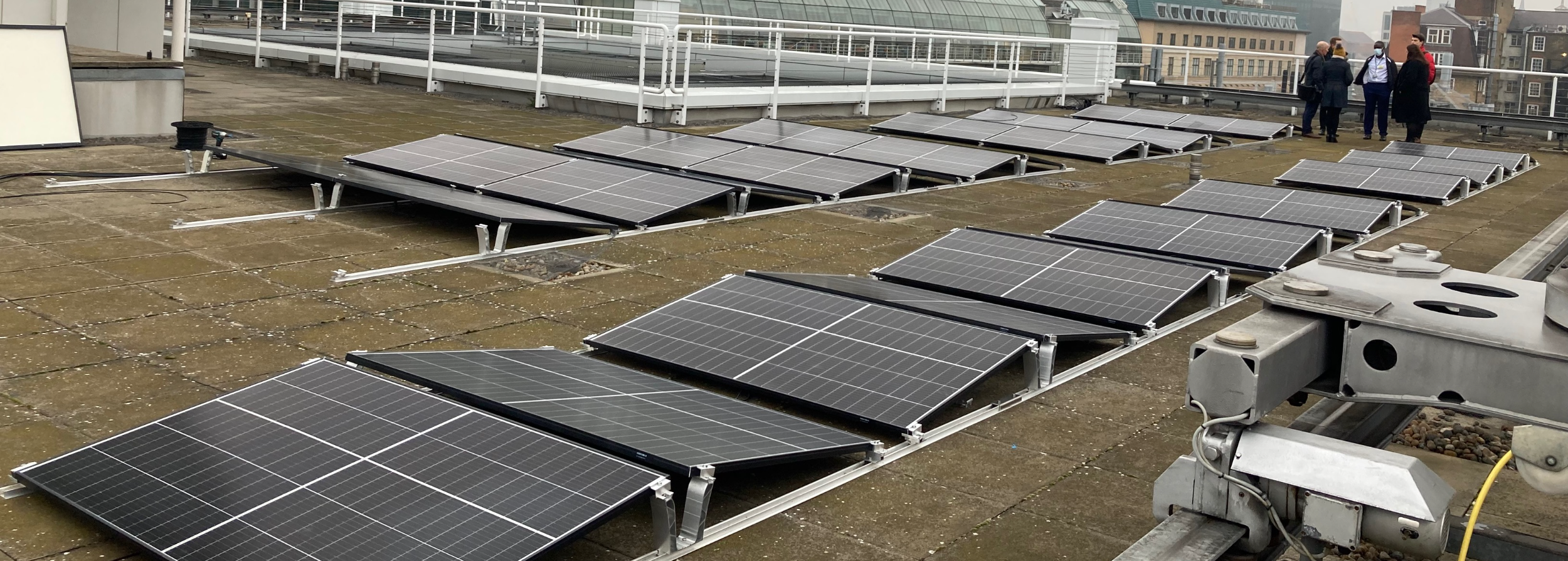Reducing desflurane use, installing solar panels and recycling theatre waste at University College Hospitals NHS Foundation Trust
Summary
University College London Hospitals NHS Foundation Trust (UCLH) has introduced several initiatives to save money and help reduce carbon emissions without impacting patient and staff experience, including reducing use of desflurane gas, installing solar panels and recycling single-use theatre waste.
One of England’s largest NHS trusts, UCLH provides acute and specialist services across 6 central London hospitals.
The issue
In August 2021 UCLH declared a climate and health emergency, and has since set a target of reaching net zero carbon emissions by 2031, 9 years ahead of the NHS’ national target.
To reach this goal, the trust has recruited over 300 sustainability champion volunteers and identified key areas where improvements can be made, including reducing anaesthetic gas emissions, making its energy supply more renewable, and improving recycling to reduce the large amount of single-use theatre waste being incinerated each year.
The solution
To reduce its use of desflurane, UCLH made simple changes such as removing the gas from operating theatres and storing it in pharmacy cupboards instead. Staff were then encouraged to use other options such as sevoflurane, a safe and appropriate alternative that offers patients the same pain relief with a significantly lower environmental impact. UCLH’s Green Theatre Group also promoted the use of total intravenous anaesthesia (TIVA), which again has a significantly lower environmental impact than desflurane and is reported to lead to less patient nausea and vomiting, with improved recovery times.
UCLH also explored how to generate renewable energy on-site – a challenge when working with limited site space in central London. The trust switched to a green electricity supplier and installed 452 solar panels on 2 roofs.
“The key is to make it easy for staff to make choices that benefit the planet, while also improving care. This small change is ‘win-win’, because we have the chance to make things better for our patients as well as the environment.” Damon Kamming, consultant anaesthetist and member of UCLH’s Anaesthetic Climate Emergency Group.
Additionally, UCLH has developed a new programme to improve recycling rates for single-use surgical items, which are often difficult to recycle because they are made of mixed materials. Delivered in conjunction with Johnson & Johnson MedTech and its partners MYGroup and Resourcify, the programme enabled metal and plastic from suture foil packaging to be collected from theatres in special bins. The items were then sorted, separated and repurposed into new products.
The impact
In 2022/23, UCLH reduced desflurane emissions by 95% without any negative impact on patient experience.
The new solar panels produced over 54,000 kWh of energy in their first 3 months, saving 15.5 tonnes of carbon emissions. The panels will deliver significant cost savings for the trust, with a return on investment expected in 8 years based on current energy prices.
UCLH’s recycling project is still in its early stages but is expected to reduce the amount of single-use theatre waste that needs to be incinerated by 215 kg a year.
Next steps
“The installation of solar panels will bring considerable financial and environmental benefits to UCLH and is just one of many sustainability projects taking place across our hospitals. We will continue to explore how our estate can help UCLH reach its target of becoming a carbon-neutral organisation by 2031.” Olúkáyọ̀dé Aláká, Director of Estates and Facilities.
UCLH plans to reduce its anaesthetic gas emissions further by switching from large nitrous oxide manifolds to portable cylinders, rationalising the purchase and usage of isoflurane, which is more environmentally harmful than other options, and exploring investment in innovative capture technology so exhaled gases can potentially be recycled.
The trust is exploring other potential sites for solar panels around its estates, switching gas boilers for electric heat pumps as and when they need replacing and installing software to automatically switch off computers not being used overnight.
Want to know more?
Contact: Elliott Westhoff, Head of Sustainability Programme at UCLH: uclh.sustainability@nhs.net


